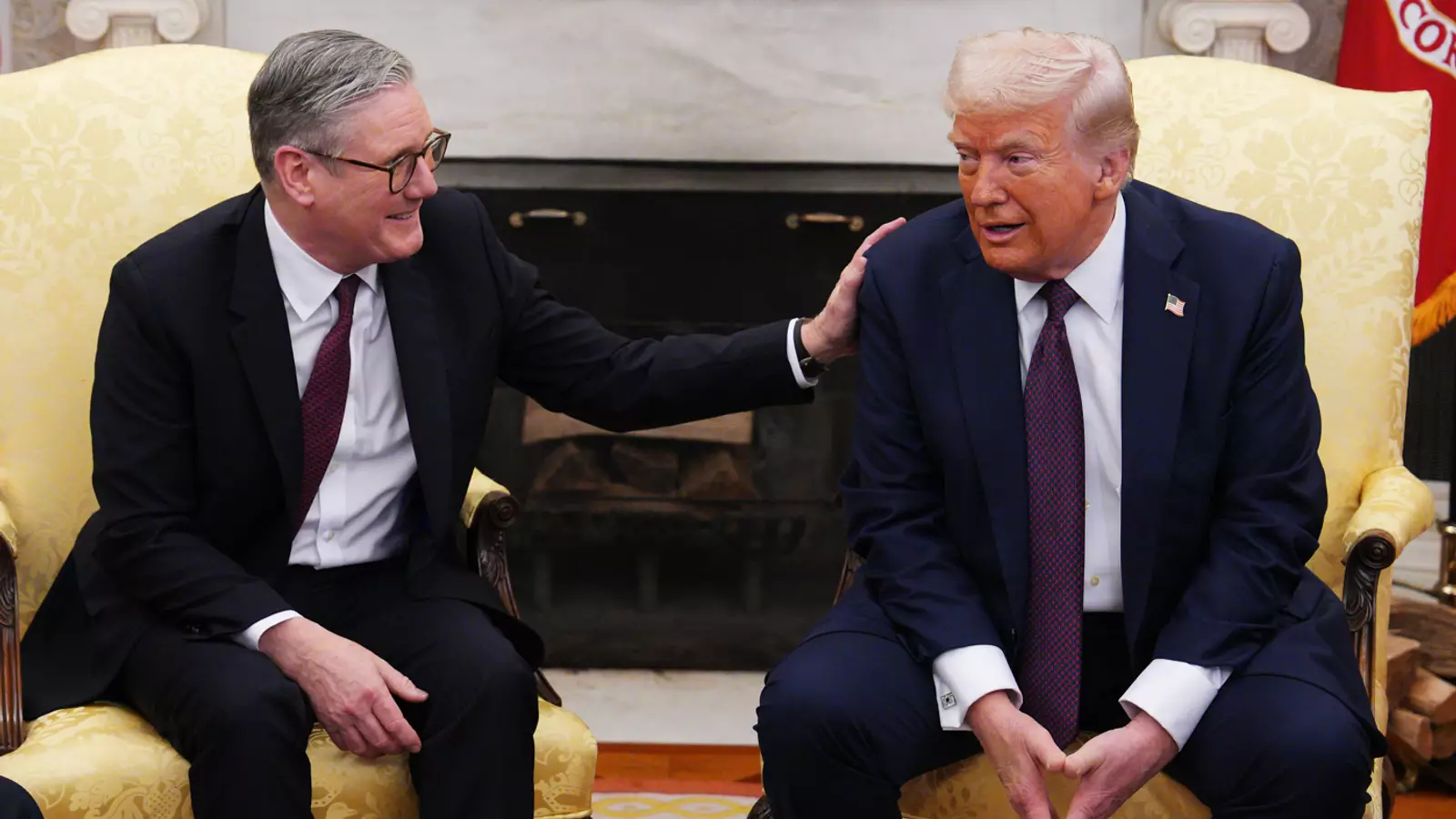In the shadow of rising tensions between the United States and the United Kingdom, the prospects for economic collaboration feel precarious at best. Sir Keir Starmer, the UK Prime Minister, has recently painted a picture of an evolving trade landscape, claiming that discussions for a fresh economic deal with the US are “well advanced.” However, this optimism clashes starkly with the undeniable reality that the UK is staring down the barrel of new tariffs set to be imposed by the Trump administration. It begs the question: are we truly equipped to navigate this tumultuous trade environment, or are we merely indulging in political rhetoric that distracts from a looming economic crisis?
Starmer’s insistence on a “calm approach” rather than a “knee-jerk” response seems wise, but it inherently raises concerns about what “calm” means in a world increasingly defined by volatility. When faced with threats of tariffs—from an administration that has all but declared economic war on countries deemed to have unfair trade practices—what level of calm is acceptable? A reaction of inactivity could potentially lead to severe ramifications for the UK economy. Political decorum is one thing; economic preservation is another.
The Irony of Liberation Day
Trump’s terming of the upcoming tariff announcement day as “Liberation Day” is a particularly ironic twist. While he purports to act in the interests of American workers, the implications for UK industries could be devastating. British goods, poised to absorb a 25% levy, will likely witness a sharp decline in demand from the US, impacting thousands of jobs on the other side of the Atlantic. While Trump’s administration may thrive on the rhetoric of protectionism, the collateral damage to the UK’s economy could lead to broader repercussions for American consumers as well, who will feel the sting of increased prices on imported goods.
Moreover, if we pursue retaliatory tariffs—a pathway alluded to by the UK’s business and trade secretary—this could lead to a tit-for-tat trade war that neither side truly desires. The potential fallout from such a conflict isn’t merely economic; it risks estranging the alliance between two nations historically united by strong ties. While Starmer’s strategy of measured action is commendable, it’s essential to recognize the urgent need for a robust negotiation strategy rather than a passive waiting game.
A Time for Strategic Rethink
The Office for Budget Responsibility warns that an increase in tariffs could decimate the UK economy by 1%, a scenario that no government should ever take lightly. If the financial forecasts are accurate, this isn’t merely a minor bump in the road; it could precipitate significant tax rises in the near future, further straining an already burdened populace. The prospect of an increased cost of living should galvanize both the government and the public into urgent action.
Yet, where are the rallying cries for organized resistance? Instead, we are met with assurances of a “calm-headed” approach from the government while the economic storm clouds gather. There is a fine line between measured diplomacy and dangerous complacency; if the UK remains passive, it could find itself not just economically weakened but also politically marginalized in global discussions.
The Path Forward: More than Just Political Posturing
As the FTSE 100 fluctuates with anxiety, the importance of establishing unequivocal strategies has never been clearer. Starmer’s comments signal a desire for progress in US-UK relations, yet they gloss over the urgent need for proactive, rather than reactive, diplomacy. The reliance on mere hope, as articulated by the business leaders, amidst impending tariffs is not enough. Instead, it necessitates a bold approach, where economic resilience is prioritized, and solutions are sought to bring this mutual trade relationship back on track.
Can the UK stand its ground amidst this unpredictability, or will it succumb to the pressures of a threatening trade war? A robust policy outline, with clear pathways and contingency plans, must be formulated to protect not just the interests of the government, but also the livelihoods of ordinary citizens who will bear the brunt of these decisions.


Leave a Reply